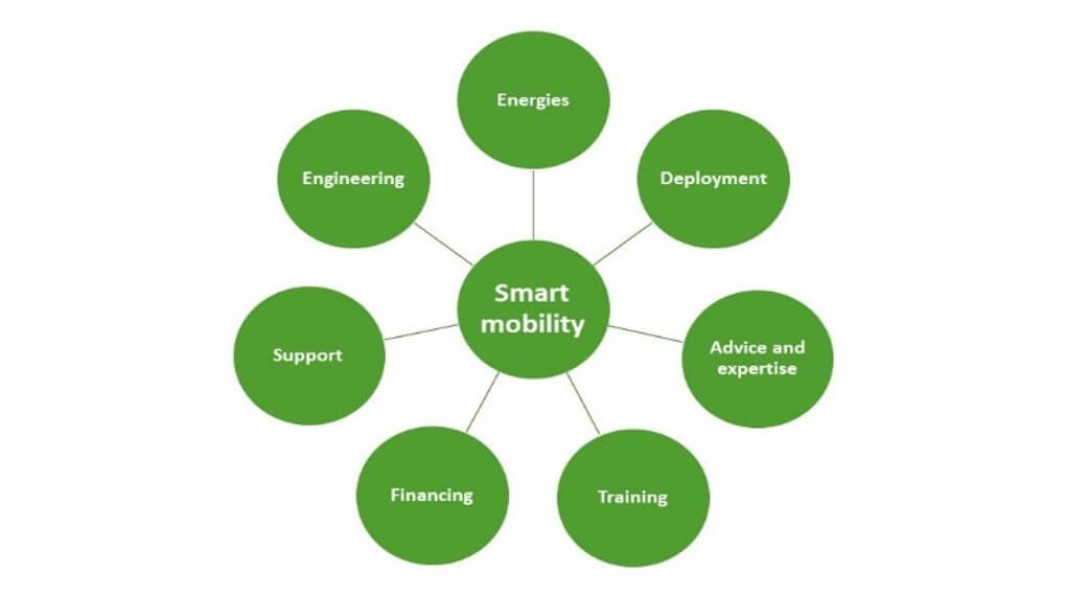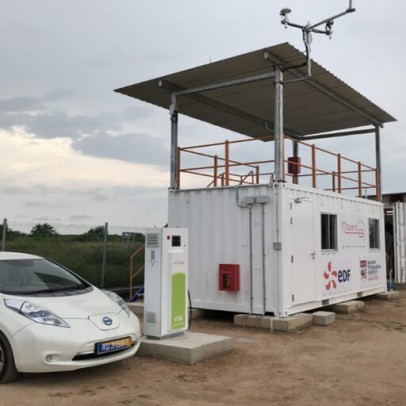EDF brings solutions to develop low carbon mobility. From electric to hydrogen technology, EDF can develop, build, operate or maintain infrastructures in order to create a greener future. EDF also proposes some engineering studies to improve the pertinence of the projects and is able to provide some help in its financing.

Transcript
Smart mobility fields in which EDF develops its offers : energies – deployment – advice and expertise – training – financing – support- engineering
Sizing and integration of electric or hydrogen vehicle charging
Optimize the localization of charging stations to satisfy users while taking into account the constraints of electricity networks and road transport. Knowing how to choose which charging station technology (fast charging, induction, etc.) to deploy at which localization to meet the need.
Development of new charging solutions
Study different scenarios using electric or hydrogen solutions.
Equipment testing and supplier qualification
Deploy solutions adapted to your environment and needs.
Supervision tools
To monitor the charging station park, to provide a simple and efficient interface to users, to help the network operator to manage demand (V2G, peak loads), to ensure the traceability of the decarbonized origin of energy, to allow corporate EV fleet managers to calculate the costs inherent to charging.
Financing your infrastructure and vehicles
Thanks to its subsidiary NEoT, EDF provides some financing to improve the profitability of the project and reach unbeatable level of prices to the end customers.
Green hydrogen infrastructure
From the green electricity to the hydrogen refueling station passing by the electrolyzer, EDF, thanks to its various subsidiaries, can equip all the gates of the production chain of hydrogen.
Opening towards a smart future
EDF is already focused on the future of mobility. V2G or Blockchain are new technologies that will help this field grow bigger and smarter.
They trusted us





Masera: the smart mobility close to Singapour
What is the project: This EDF project, led by an R&D team based in France, Singapore and UK, involves a number of EDF Group entities (ENEDIS, spin-offs, R&D and engineering departments) as well as French and international partners. Leveraging EDF R&D experience, skillsets and innovations, the project seeks a fully integrated microgrid, easily deployable, reaching local needs with an affordable electricity supply, and targeting packaged and plug & play solutions.
Our part in it: MASERA has been deployed in only one year by EDF and its key partners from basic designto full commissioning in October 2018. MASERA leverages the strong EDF Group international experience in designing, developing and operating distributed energy solutions. MASERA microgrid is now connected to the REIDS medium voltage grid from there on it will be a flexible testbed for various use cases (100% renewables, islanding, critical loads, voltage regulation) and technologies (storage, advanced controls) until 2021.
What benefits our input created in the project : Among others:
- Integration of second-life electric vehicle batteries along with innovative zinc-air batteries;
- Use of bi-facial photovoltaic panels to maximize renewable energy production;
- Electric mobility integration through a Vehicle-to-Grid (V2G) charging station providing flexibility (bi-directional power flows).

